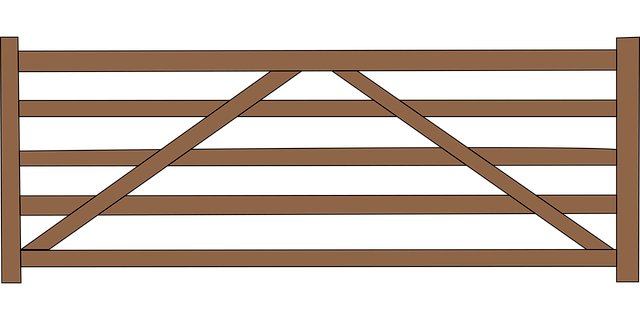In New Bedford, MA, residential fence installation has become a popular home improvement project, enhancing property values and providing essential privacy. Understanding your specific needs is crucial before embarking on this endeavor. This article guides homeowners through the process, from identifying suitable fence types—wooden, vinyl, or chain-link—to selecting reputable companies. We’ll explore the installation process, offering tips for a seamless project, and highlight post-installation maintenance to ensure your new fence remains sturdy and beautiful.
- Understanding Residential Fence Needs in New Bedford
- Choosing the Right Installation Company
- Types of Fences for Your Home
- Installation Process and Tips
- Post-Installation Maintenance and Care
Understanding Residential Fence Needs in New Bedford
In New Bedford, residential fence installation is a popular choice among homeowners seeking to enhance their outdoor spaces and ensure privacy. The city’s diverse neighborhoods offer a range of unique architectural styles and landscape preferences, each with specific fencing requirements. Whether it’s a classic wooden picket fence for a colonial-style home or a modern metal fence surrounding a contemporary property, understanding these needs is key. Homeowners consider factors such as security, privacy, aesthetic appeal, and functionality when choosing a fence type, design, and material.
The diverse climate in New Bedford, with its cold winters and humid summers, also plays a significant role in fencing decisions. Durability and weather resistance are essential considerations to ensure the longevity of the fence. Homeowners want fences that can withstand harsh weather conditions while maintaining their beauty and structural integrity. Therefore, when selecting a residential fence installation company, it’s crucial to find experts who understand these local dynamics and can provide tailored solutions for each unique property.
Choosing the Right Installation Company
When considering residential fence installation, New Bedford residents should prioritize companies with a proven track record and expertise in the industry. Not all fencing contractors are created equal, so it’s essential to research and select a company that aligns with your project’s needs. Look for businesses with a diverse range of services, offering both aesthetic and security-focused solutions. Reputable companies will be able to provide you with references and examples of their previous work, ensuring you get the desired outcome.
Additionally, consider the team behind the installation. Skilled and certified installers are key to a successful project. Inquire about their training, experience, and if they stay updated with industry trends and the latest fencing materials. A company that values customer satisfaction will prioritize your communication, providing transparent quotes and timely responses throughout the installation process.
Types of Fences for Your Home
When considering residential fence installation, New Bedford homeowners have a variety of options to suit their preferences and property needs. The most common types include wood fences, known for their natural beauty and ability to blend seamlessly with outdoor landscapes. Vinyl fencing is another popular choice, offering durability and low maintenance. It comes in various styles and colors, making it adaptable to different design tastes.
For those seeking a modern look, aluminum or iron fences provide a sleek and secure option. These materials are resistant to corrosion and require minimal upkeep. Chain link fences are ideal for properties with children or pets as they offer both security and visibility. Additionally, privacy fences constructed from solid panels ensure maximum seclusion, creating an intimate outdoor space.
Installation Process and Tips
When it comes to residential fence installation, understanding the process is key to a successful outcome. Most companies begin by assessing your property and needs through an initial consultation. They’ll measure the area, discuss material options, and provide a detailed estimate. Once approved, the installation team will clear the site, ensuring proper preparation for the new fence. This involves removing any existing structures or debris and grading the ground to create a level base.
The actual installation typically involves posting wooden or metal posts at strategic locations, then attaching vertical rails. Horizontal boards or panels are secured to these rails, creating the fence structure. Regularly check in with your contractor during the process to ensure it aligns with your vision and specifications. Proper maintenance after installation, including regular cleaning and treatment against weather, will prolong the life of your new fence.
Post-Installation Maintenance and Care
After your new fence is installed, proper maintenance ensures its longevity and beauty. Regular cleaning with mild soap and water is recommended to remove dirt and stains. A soft-bristled brush can help reach crevices and keep the fence looking fresh.
Annual inspection is crucial to identify any potential issues early on. Look for loose posts, damaged boards, or rusted hardware. Repairs should be addressed promptly to prevent further deterioration. Keep an eye out for vines or plants that might grow through the fence and regularly trim them back to maintain its aesthetic appeal.
